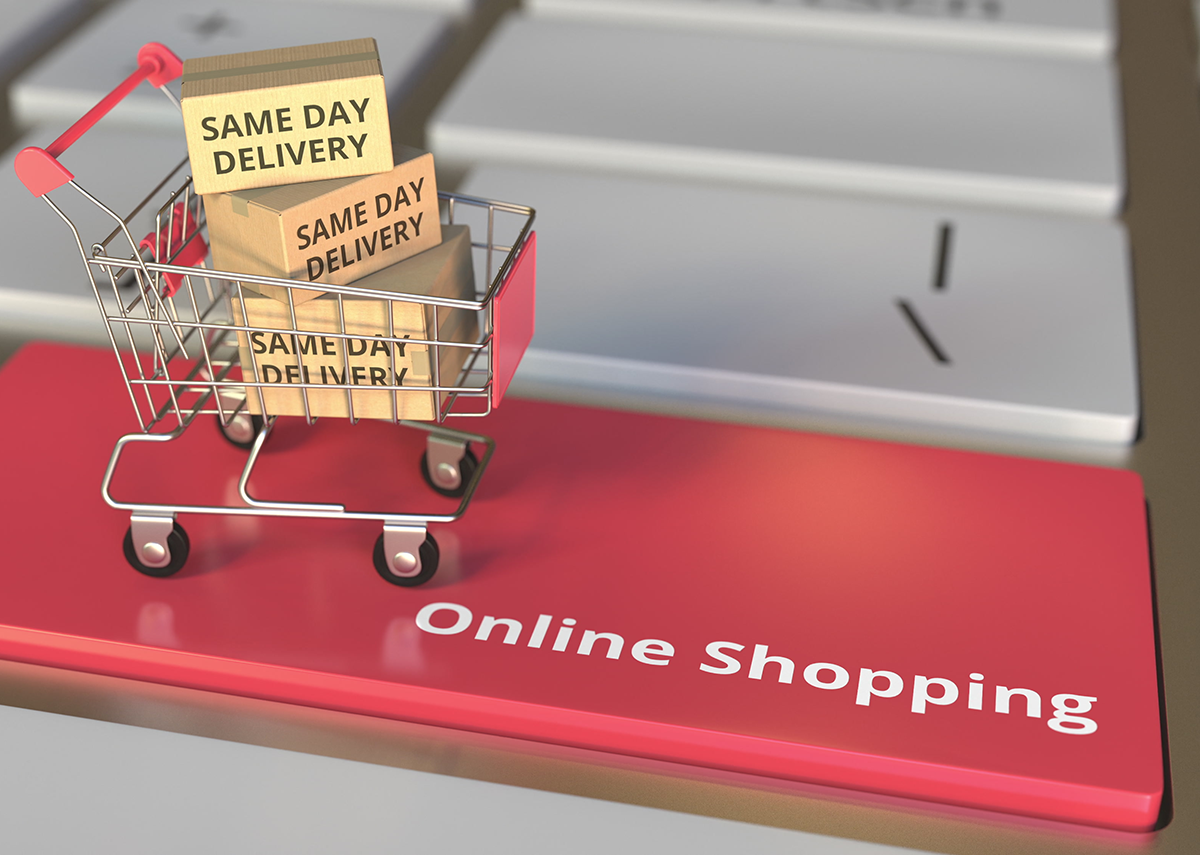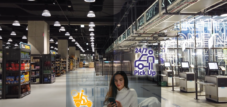Micro-Fulfillment – Crises rarely come alone
Language selection 📢
Published on: January 26, 2021 / update from: January 26, 2021 - Author: Konrad Wolfenstein
Most of the time, major crises don't just come out of the blue. There are harbingers, ominous developments and missed opportunities to give in in time. It is usually due to the complexity of the context that the inevitable happens: the economic crisis or when another bubble bursts. The Western world has been spared from major accidents and catastrophes since World War II. Brexit itself was considered manageable without the EU falling into major difficulties.
corona crisis
This changed suddenly with the corona pandemic. Existing problems and bottlenecks were particularly noticeable in logistics. Supply chains were interrupted and supplies to the population could only be maintained with emergency logistical solutions. For shipping logistics, 2020 was almost a year-round volume of work like usual at Christmas.
It's slowly becoming clear to everyone that the current situation is not a temporary one. That the changes that have already taken place will be permanent and will become the standard.
But for some people there still seems to be a desperate hope that this is just a storm that will pass and then everything will continue as before. Anyone who thinks like that is wrong and is losing valuable time compared to the competition.
Suitable for:
- 7 points and one chance: The corona pandemic is forcing us to rethink
- The Corona pandemic and its effects on key industries: What you need to do now
- The lessons of the crisis: Logistics as a key factor
Above all, the big ones, especially Amazon, are the big winners and beneficiaries of this crisis. E-commerce medium-sized businesses are becoming more and more dependent on digital platforms. Many people now generate their leads almost exclusively via such digital platforms and the major social media channels, instead of relying on multiple digital sales channels. SEO has long been neglected. There is increased investment in automating lead processing instead of expanding performance marketing. New accents are no longer set or even sought. Your own digital microcosm is lost. It's bad enough to see that established industries are competing with each other all year round with 20-30% discount campaigns in order to attract new and existing customers.
Marketing crisis
Budgets are increasingly moving towards paid ads on Google & Co. Anyone who is honest knows that a ROAS (return on advertising spending) of 600% in the area of social media is a utopia for many. If agencies celebrate a ROAS of 150% as a success, then it is window dressing.
If I achieve sales of 7,500 euros (150 % Roas) with an advertising use of 5,000 euros, then the costs of the ADS advertising agency are not yet included, as well as my own further costs such as wages, rent, purchase etc. A roas of 300 % is unsatisfactory. Everything about it is difficult to find. The big winners “of our” advertising campaigns and contacts are ultimately the social media giants Facebook & Co.
It is also shocking to see that many are increasing their marketing via social media and directing their customers there. What this means is that you share your customers with Facebook & Co. and thus expose them to the competition. Many people are unaware of this mistake and do funnel marketing the wrong way round. Many people forget that it is precisely this data, the customer data and their contacts, their behavior and interactions, that is the capital that the social media global players know how to use optimally for themselves: with advertising, including advertising from our competitors.
Fulfillment crisis at Amazon
Individual orders and deliveries are costly, time-consuming and hardly profitable if you are not specialized in it. Therefore, many outsource their e-commerce business and use fulfillment service providers. But not all fulfillment is the same. Large, well-known fulfillment service companies such as Amazon, Arvato, DHL, Fiege, Hermes, XPO Logistics or Kühne + Nagel differ in their areas of focus.
Amazon e.g. B. provides a sales channel with its digital platform of the same name. Amazon is particularly generous when it comes to returns management, especially at the expense of its partners. The partner and dealer are generally held responsible for shipping errors.
It can also happen that Amazon unilaterally and independently extends the payment conditions, blocks certain items and payments that have already been received and removes them from the offer. As a rule, the goods can (does not have to) be activated again in the offer on the Amazon platform via a complex procedure.
Everyone needs to be clear about what they are getting into and to what extent they are becoming dependent on fulfillment services.
With Amazon you also have to be aware of which neighborhood you are in. Chinese online retailers are becoming increasingly dominant on Amazon. The number of Chinese retailers is also increasing significantly on the German Amazon marketplace. According to a recent analysis by the US company Marketplace Pulse, Chinese online retailers are in the majority on Amazon.com for the first time. Of the 10,000 top sellers on Amazon, 49 percent are based in China and only 47 percent are based in the USA.
In Germany, too, the number of China retailers on Amazon has increased by 10 percent. Current share: 38%. Last year it was 28%. However, among the top 100,000, the Chinese with 41% have already overtaken the German providers with 33%. In France the proportion among the 10,000 top sellers is 55%, in Italy it is 53% and in Spain it is 58%. Ascending trend.
A problem is not only that not all Chinese products comply with European or German regulations, but it is also not clear to what extent the applicable tax is paid correctly.
Amazon is weakening. This background, but not alone, also explains why Amazon has apparently decreased in delivery reliability and customer service. The corona pandemic has certainly contributed significantly to this and Amazon is doing everything it can to combat it, including with a new micro-fulfillment project.
Suitable for:
Fulfillment issues
A new development was noticeable before Corona pandemic. Thanks to the technological progress and the growing demands on e-commerce through its “impatient” customers, the Same-Day Delivery concept has increasingly come into focus. Likewise the feasibility. Same-Day Delivery is a form of a KURIER Express package service that ideally supplies packages faster within a calendar day or in a planned time window. Although a volume of three billion euros will be forecast in Western Europe by 2020, only one niche market is still expected due to the higher costs and the economy of customers. Corona pandemic will change and accelerate this sustainably.
So the Corona pandemic z. B. “forced” the crucial step forward with video conferences. There is a rethink in the companies. The longer business trips are replaced and learned by video meetings, especially in the internal international area, the more the need for long-distance flights will decrease.
Home office is also a good example. What was hardly possible before suddenly became self-evident and you ask yourself, why did it take so long? Of course, not everything that glitters is gold, but it does expand and facilitate the possibilities for making the working world flexible.
Suitable for:
- Courier, express and parcel shipments in Germany
- Same day delivery
- Last Mile Logistics – Facts you should know
Above all, the closed shops during pandemic showed very quickly where the big weak points of our e-commerce are. While many things from everyday life can be ordered online, they are far from being available in “fast” shipping. Several days are not uncommon. There is also a pick -up service on site if, then mostly only rudimentary. Whether drive-in, click & Collect or sales machine, everything had to be stamped out of the ground in no time. It didn't always work. A shoe dealer had unpainted a few shoes to a customer in the neighborhood at his front door. He was seen and reported to the police. A fine will follow. In no way, this will not be worth it, even if you can assume that the focus was on quick help here.
With the previous fulfillment solutions, you can:
- a) Small orders and
- b) fast deliveries (same day delivery)
cannot be achieved optimally in a cost-reduced manner.
Micro-fulfillment is the next necessary step, especially in the food sector, where the perishable nature of the goods requires fast delivery.
Micro fulfillment
Daifuku, the world market leader in intralogistics, has already successfully implemented such a system:
In general, Japan is already a few steps ahead of us here. More about it here:
The basic requirement for this is an automated storage system. In micro-fulfillment warehouses, pickers and customers don’t get in each other’s way. The automated pickers (robots) are in use around the clock, all year round.
The human factor is important
Because micro-fulfillment is very cost-intensive, this must be offset by automation, automation processes and robotics. An autonomous warehouse alone will not work. Advice and services are crucial for acceptance and success.
It's not just about reducing contact between sales staff and customers just because of the corona pandemic.
It's about the absolute freedom to decide whether the goods can be ordered on site, mobile or at home. Whether and where the goods can be delivered or, if desired, picked up and even continued as a purchase on site.
Flexibility in options is an essential feature of today's economic thinking.
It is not progress if we transform customer-serviced stores into autonomous sales hubs, where there is no longer any room for interpersonal questions and advice, complaints and many other services such as mailing and parcel delivery and therefore represents a blatant step backwards.
Conditions for micro-fulfillment from the customer's perspective
Home shopping
- Pick up goods
- Continue shopping locally
- Bring service/delivery service
Mobile shopping
- Pick up goods
- Continue shopping locally
Hub Shopping
- Online shopping in the meeting area (e.g. in a Cafe Hubspot)
- Real shopping experience
Payment systems
- Cashless
- Contactless payment
- Paying at the non-autonomous checkout (presence of cashiers)
particularities
- 24/7 Service – Shop and receive goods around the clock
- 24/7 Meeting Area – Café, snacks etc. around the clock
Daifuku's Business Development is a very good starting point for competent exchange and advice. Market leaders, many years of experience and personal contact are important factors for the Daifuku team to understand the concerns and problems of its customers and to offer solutions.
Or simply fill out the contact form here:
























